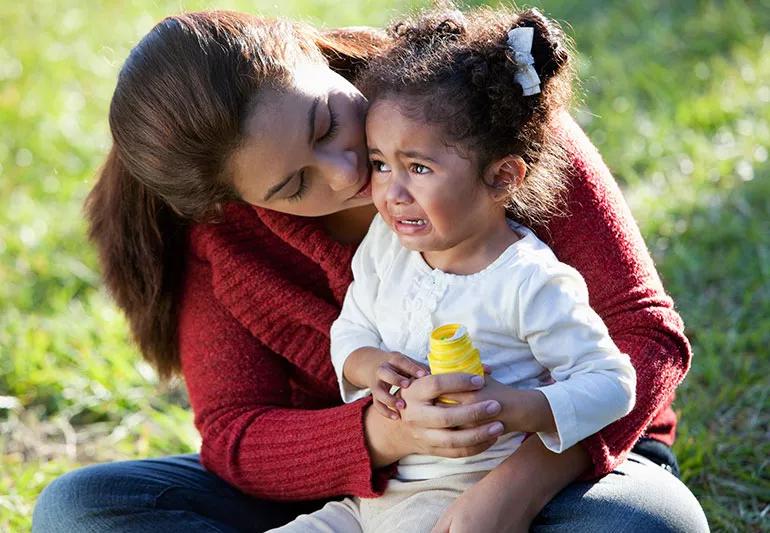Find out how to head off unruly behavior

Does this sound familiar? Your cute-as-a-button 2-year-old asks for candy in the check-out line at the grocery store. You say no. What happens next is the stuff of parent nightmares: Your child melts into a screaming, crying heap right before your eyes — capturing the interest of ALL of your fellow shoppers.
Advertisement
Cleveland Clinic is a non-profit academic medical center. Advertising on our site helps support our mission. We do not endorse non-Cleveland Clinic products or services. Policy
Ah, the “terrible twos.” While the phase won’t last forever, it sometimes can feel like it will never end. In the meantime, it’s a good idea to have some strategies for handling your toddler’s unruly behavior.
For every child who seems to skip the meltdown stage altogether, there’s another whose terrible two phase seems to last for years. “While most children fall somewhere between those extremes, it is very common for children to go through a phase of unruly behavior somewhere between the ages of 18 months and 4,” says pediatrician Mary Wong, MD.
“The toddler years are a time of rapid growth — physically, mentally and socially,” she says.
During this time, most toddlers develop their sense of self and start to want to do things independently.
“When a toddler’s desire to do something doesn’t align with their ability, frustration is often the result,” Dr. Wong says. “To further compound things, toddlers typically don’t have the language skills to ask for help if things don’t go smoothly.”
This gap between desire and ability can cause frustration, unruly behavior (like biting other children) and tantrums.
“While there is no quick fix for undesirable toddler behavior, you can take steps to help things go more smoothly when the terrible twos emerge,” Dr. Wong says.
Advertisement
When misbehavior strikes, it’s helpful to remind yourself that you aren’t alone.
Rest assured, “Your child won’t still be going through this phase when they go off to college,” Dr. Wong says.
Advertisement
Learn more about our editorial process.
Advertisement

Adding extra formula, cereal or medications to your baby’s bottle is a dangerous and misguided practice

Teaching your baby to sign may help ease frustrations before they can talk, but it’s not a must-do

Babies can get congested easily, but you can calm their cough by keeping them hydrated, using nasal drops and running a humidifier

Try to burp your baby mid-feed and after they finish eating — but don’t sweat it if they don’t burp

Most babies will recognize their name by about 9 months old

Clean your baby’s mouth with a washcloth or small toothbrush if they have a tooth or you suspect thrush

‘Social smiles’ typically start around 8 weeks old, while laughter comes later — around 4 to 6 months

Most infants can roll from tummy to back by 6 months old — but remember, every child develops at their own pace

Wearing a scarf, adjusting your outdoor activities and following your asthma treatment plan can help limit breathing problems

Your diet in the weeks, days and hours ahead of your race can power you to the finish line

When someone guilt trips you, they’re using emotionally manipulative behavior to try to get you to act a certain way